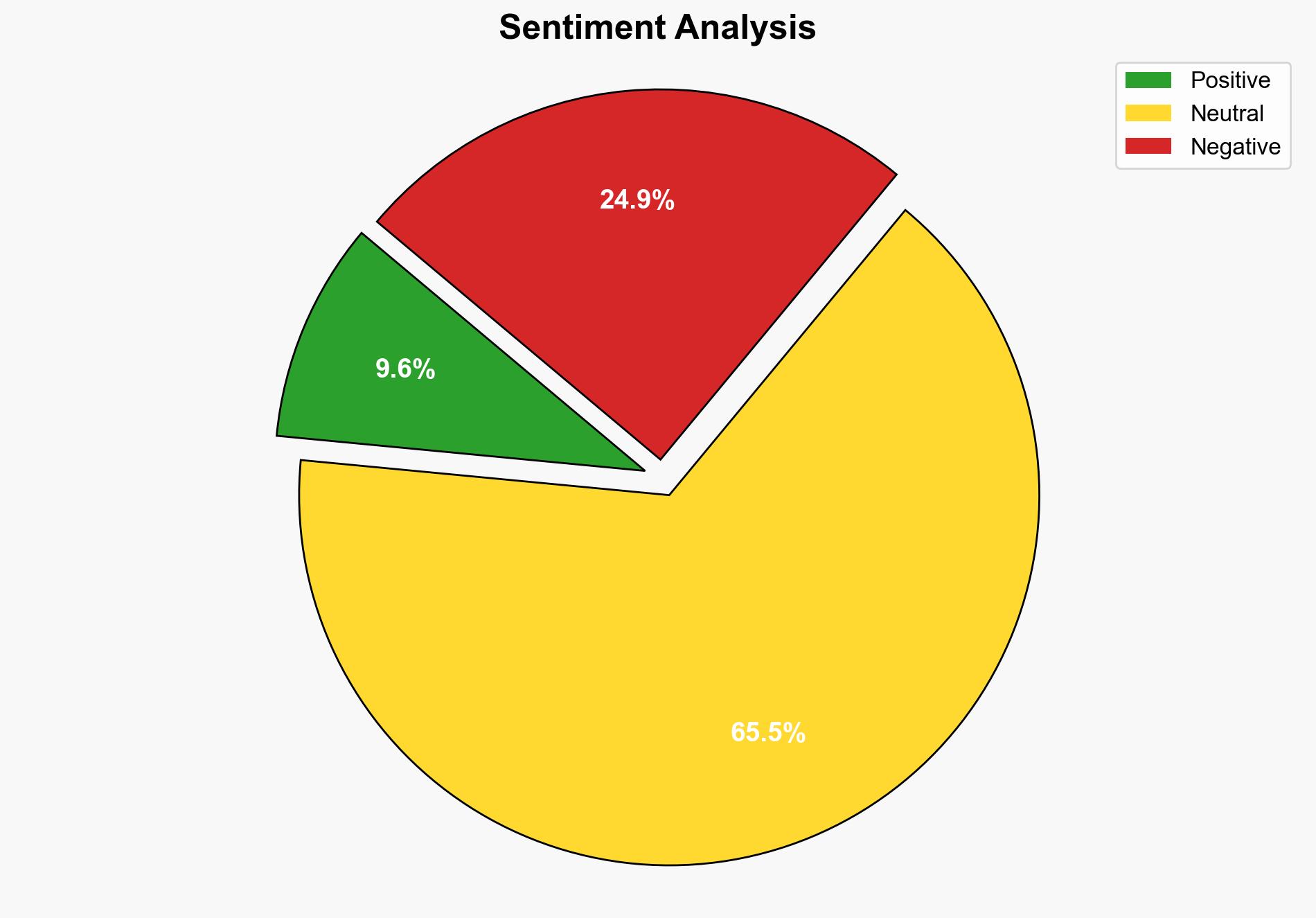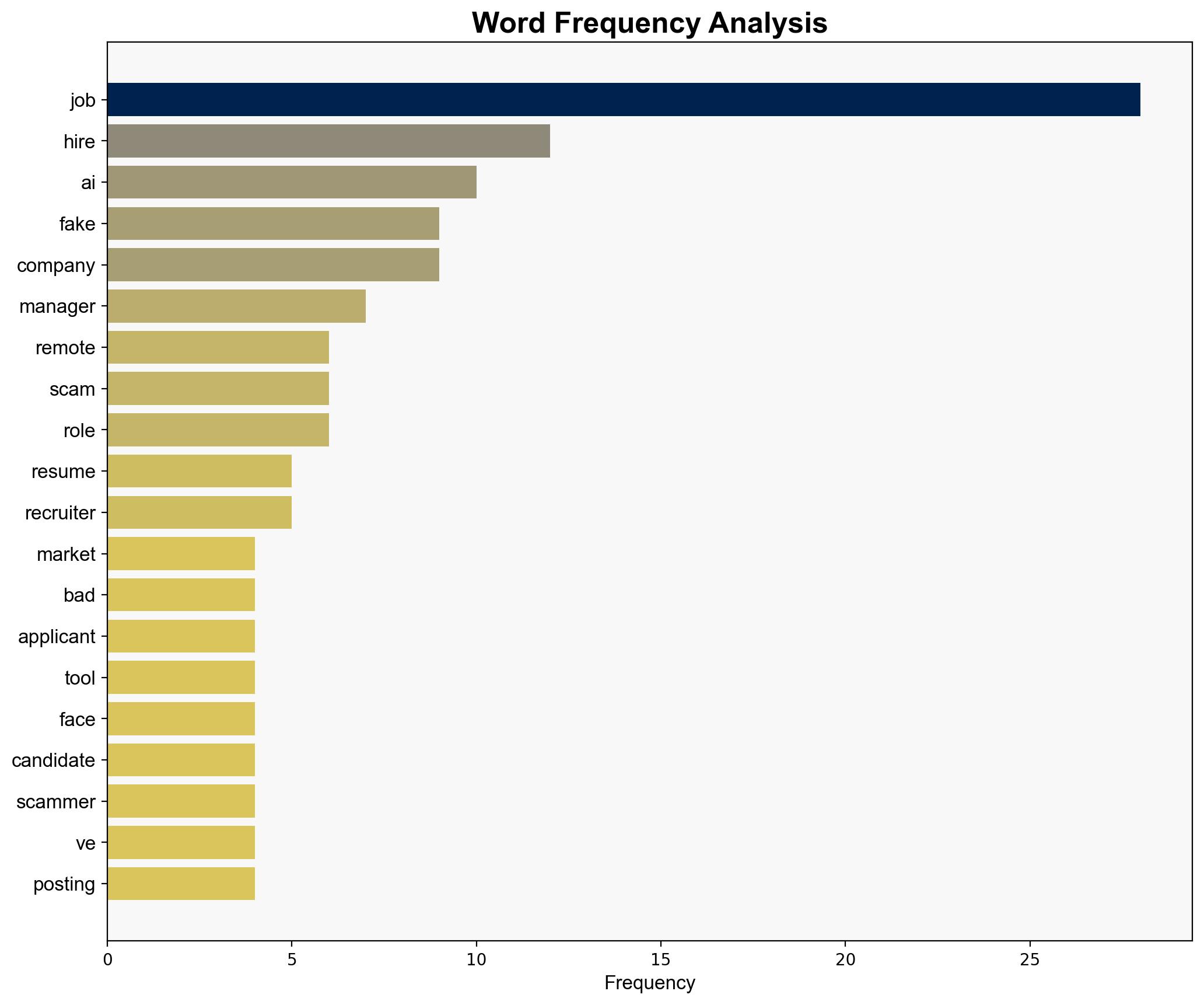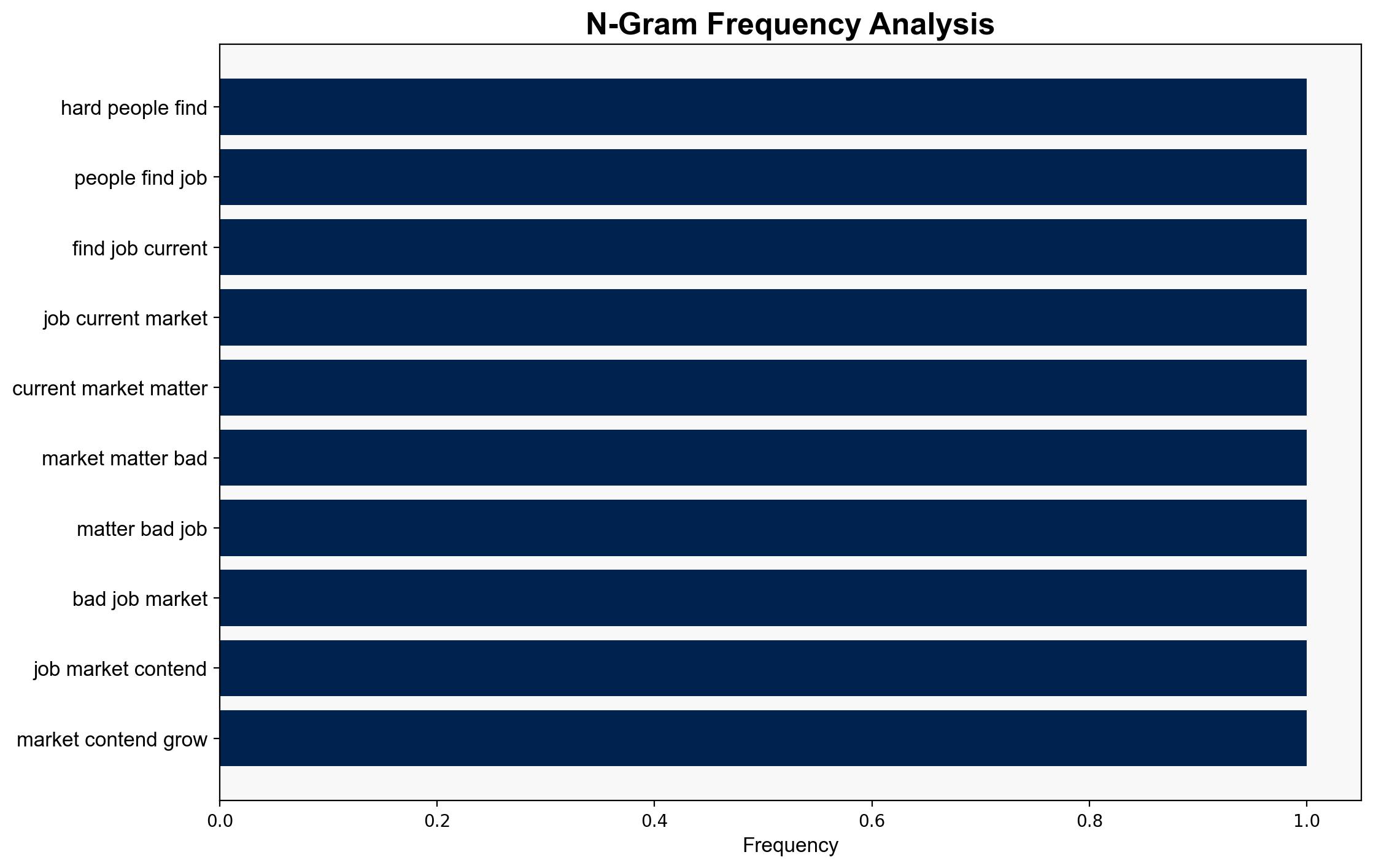Fake Job Seekers Are Exploiting AI To Scam Job Hunters And Businesses – Forbes
Published on: 2025-04-11
Intelligence Report: Fake Job Seekers Are Exploiting AI To Scam Job Hunters And Businesses – Forbes
1. BLUF (Bottom Line Up Front)
The U.S. job market is facing a significant threat from fraudulent job applicants utilizing advanced AI tools to deceive hiring managers and secure remote positions. These impostors employ deep fake videos, voice manipulation, and fabricated resumes to create convincing false identities. This phenomenon poses not only a hiring challenge but also a cybersecurity crisis, as infiltrators aim to steal data, plant malware, or misappropriate funds. Immediate action is required to enhance verification processes and protect both businesses and job seekers from these sophisticated scams.
2. Detailed Analysis
The following structured analytic techniques have been applied for this analysis:
General Analysis
The exploitation of AI in job scams is a growing concern, with scammers leveraging generative AI to fabricate resumes, photo IDs, and employment histories. They often mimic real professionals using Deepfake technology during video interviews. AI tools like ChatGPT are used to craft resumes that bypass applicant tracking systems, while real-time AI assistants help scammers answer technical questions during interviews. The “bait-and-switch” tactic, where a skilled stand-in aces the interview, is also prevalent. These scams are not only a hiring headache but also a cybersecurity threat, with potential for ransomware installation, trade secret leaks, and financial losses.
3. Implications and Strategic Risks
The implications of AI-driven job scams are profound, affecting multiple sectors. The risks include compromised national security due to potential infiltration by malicious actors, destabilization of regional job markets, and significant economic losses from fraudulent hires and data breaches. The erosion of trust in the hiring process further complicates the landscape for legitimate job seekers and businesses alike.
4. Recommendations and Outlook
Recommendations:
- Implement robust verification processes, including multi-factor authentication and enhanced background checks.
- Invest in AI detection technologies to identify and counteract deep fake and voice manipulation attempts.
- Encourage regulatory bodies to establish guidelines for AI usage in recruitment and employment verification.
- Promote awareness campaigns to educate recruiters and job seekers about the signs of AI-driven scams.
Outlook:
In the best-case scenario, increased awareness and technological advancements will mitigate the risks of AI-driven job scams. In the worst-case scenario, failure to address these threats could lead to widespread economic and security repercussions. The most likely outcome involves a gradual adaptation of security measures and regulatory frameworks to counteract these evolving threats.
5. Key Individuals and Entities
The report highlights the involvement of Gartner in predicting future trends related to AI-driven job scams. Additionally, the Federal Trade Commission and the FBI’s Internet Crime Complaint Center provide critical data on financial losses and scam prevalence.




